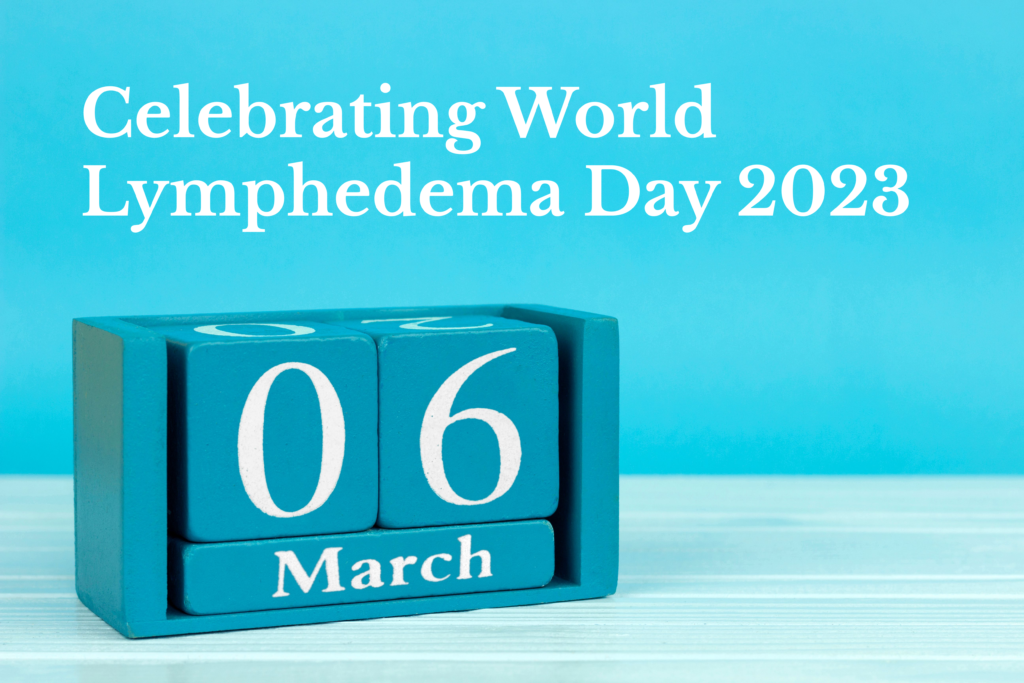

On March 6th, we honor and celebrate the awareness, understanding, and support of those with lymphedema. Lymphedema is a chronic condition that is often overlooked, and World Lymphedema Day was created to bring awareness to this condition and support those living with it.
March is Lymphedema Awareness month, a time to put on your light blue ribbon and find creative ways to participate in educating the world on lymphatic diseases. The highlight of the month, World Lymphedema Day, falls on March 6th this year. The Lymphatic Network hosts a wide range of events worldwide for the community to participate in digitally and in person. Sign up for events and presentations on their home page, or use their guide to getting involved and participating on World Lymphedema Day. The clinical, patient, and advocacy communities and the private sector join forces all month long to increase awareness of this chronic condition.
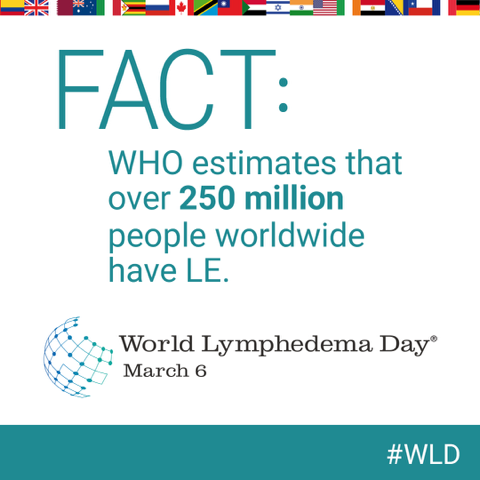

The United States Senate established World Lymphedema Day in 2016 in response to a Senate bill written by the Lymphatic Education & Research network. Advocates celebrate each March annually, with the primary focus on educating the world on all lymphatic diseases: primary and secondary lymphedema (LE), lipedema (LI), lymphatic filariasis (LF), lymphatic malformations (LM), and the full lymphatic continuum (LC) of diseases impacted by the lymphatic system.
What is Lymphedema?
Lymphedema is when excess fluid accumulates in the body’s tissues, causing swelling. It can develop when the lymphatic system, which helps move fluid to the bloodstream, is damaged or blocked. There are two types of lymphedema: primary lymphedema, which is caused by a genetic disorder, and secondary lymphedema, which is caused by an injury or medical condition. Lymphedema can affect any body part but is most commonly found in the arms and legs.
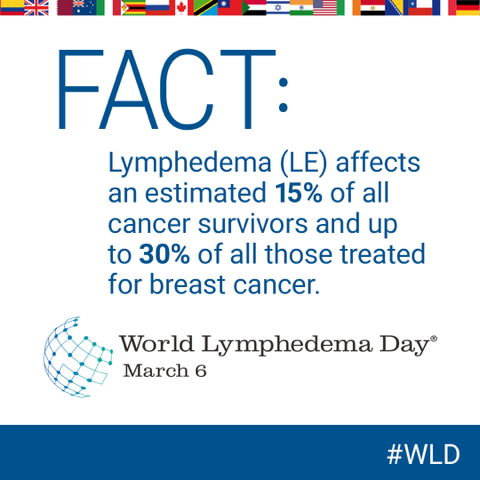

Lymphedema is a condition that occurs when lymphatic fluid, a transparent liquid composed of fat, water, salts, and proteins, begins to pool and accumulate in the arms and the legs. The initial and most predominant symptom indicating the presence of Lymphedema is significant swelling of these extremities. Medical experts point to damaged lymph vessels as the cause behind fluid retention leading to Lymphedema.. Other potential causes for fluid retention are linked to infections, genetics or underlying medical conditions, especially cancer and its treatment. Keep reading to learn more about the treatment of Lymphedema in St Louis.
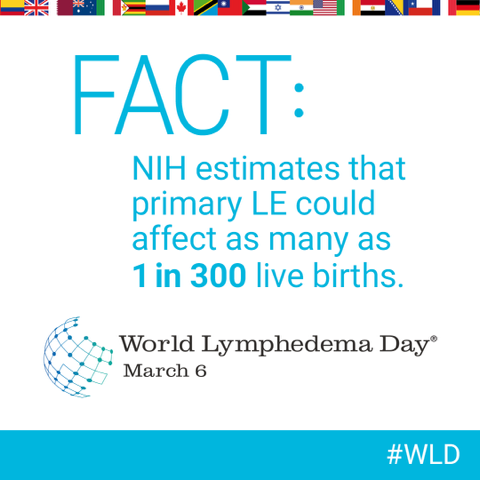

Causes of Lymphedema
The most common cause of lymphedema is damage to the lymph nodes or lymph vessels due to cancer treatments such as radiation and chemotherapy. Other causes of lymphedema include surgery, trauma, infection, and other medical conditions such as congestive heart failure or cirrhosis of the liver.
In some cases, the cause of lymphedema is unknown. This is called idiopathic lymphedema. It is most often seen in women over the age of 50.
Symptoms of Lymphedema
The most common symptom of lymphedema is swelling in the affected area. This swelling can be mild or severe and can range from a feeling of heaviness to visible swelling. Other symptoms of lymphedema include pain, tightness, aching, and stiffness in the affected area. In some cases, lymphedema can also cause changes in the skin, such as thickening, discoloration, and itching.
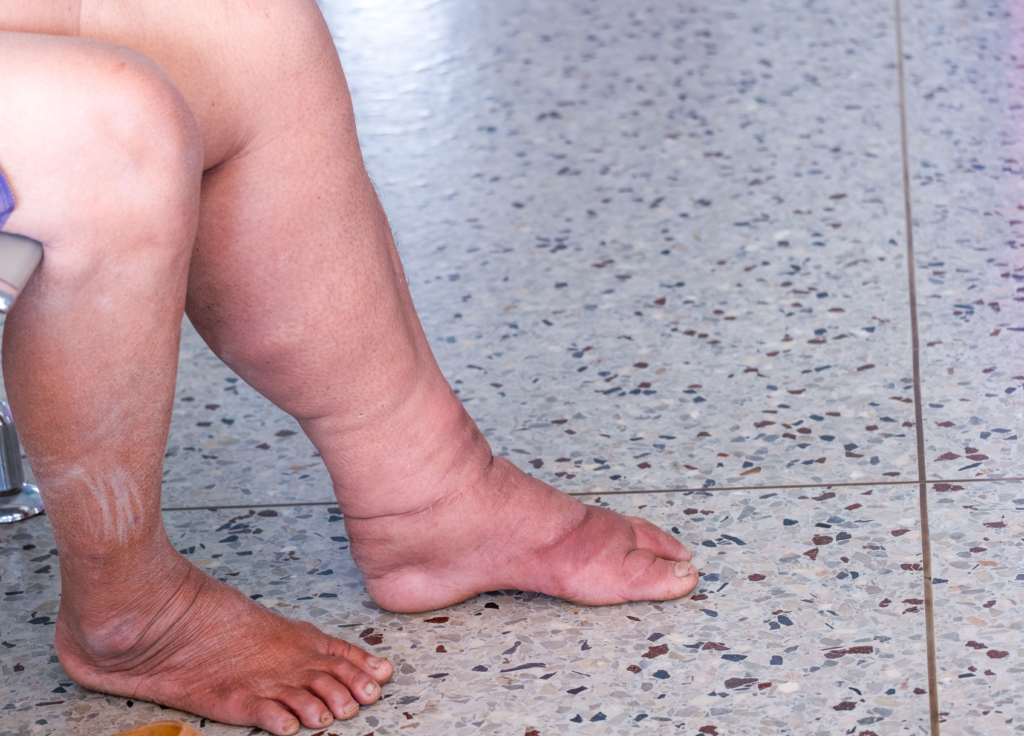

It is widely understood and accepted that Lymphedema can be an inherited medical condition and, as a result, is recognized under three distinct categories. Congenital Lymphedema refers to symptoms that develop in early childhood. Lymphedema Praecox refers to symptom development that occurs during adolescence, while Lymphedema Tarda refers to symptoms that show up in patients later in life. Lymphedema quite commonly develops in patients due to a traumatic injury damaging lymphatics. This type of trauma is generally linked to removing lymph nodes during surgical procedures related to cancer treatment or radiation. Infection is a second factor closely linked to the development of Lymphedema.
Treatment of Lymphedema
The treatment of lymphedema depends on the type and severity of the condition. Mild cases of lymphedema can often be managed with lifestyle changes such as maintaining a healthy weight, exercising regularly, and avoiding repetitive activities that can cause further damage to the lymphatic system.
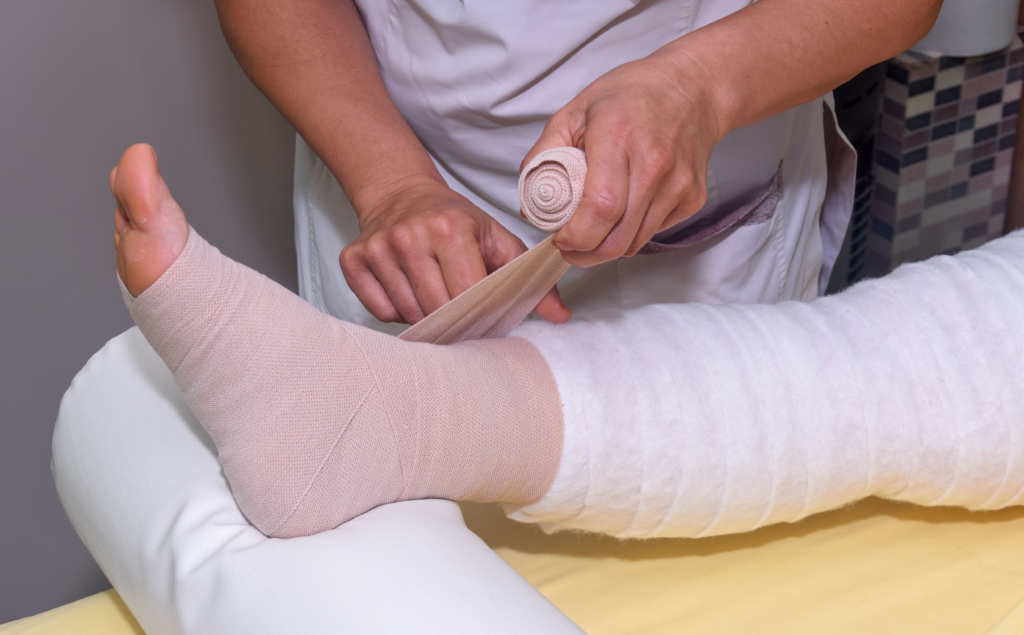

For more severe cases of lymphedema, treatments such as manual lymphatic drainage, compression garments, and physical therapy can be used to reduce swelling and improve the function of the lymphatic system. Surgery may sometimes be necessary to remove excess fluid and reduce swelling.
Lymphedema Awareness Month
In addition to World Lymphedema Day, March is also Lymphedema Awareness Month. This is a necessary time to spread awareness about lymphedema and to support those living with the condition. There are several ways to get involved, from attending events and spreading the word on social media to donating to organizations that support lymphedema research.
March 6 Color and Lymphedema Awareness Ribbon
The color for World Lymphedema Day is blue, and the lymphedema awareness ribbon is silver. Wearing these colors can be a great way to show your support for those living with lymphedema.
Ways to Celebrate World Lymphedema Day
There are many ways to celebrate World Lymphedema Day. One of the best ways is to spread awareness and educate others about the condition. You can do this by talking to your friends and family about lymphedema, sharing posts on social media, attending events, and donating to organizations that support lymphedema research.
Another way to show your support is to wear blue and the lymphedema awareness ribbon on March 6th. This is a great way to raise awareness and show your support.
And finally, remember to reach out to those living with lymphedema. A simple message of support can go a long way in helping those living with this condition feel seen and heard.
Resources for Learning More About Lymphedema
Several great resources are available if you want to learn more about lymphedema. The National Lymphedema Network is a great place to start, as they provide information about the condition, resources for finding treatment, and support for those living with lymphedema.
The Lymphatic Education and Research Network is another excellent resource. They provide a wealth of information about lymphedema, from the latest research to support groups and resources for care and treatment.
Conclusion
World Lymphedema Day is an important day for honoring and celebrating those living with lymphedema. It is a day to raise awareness and support those living with the condition. There are many ways to get involved in celebrating World Lymphedema Day, from spreading awareness to reaching out to those living with the condition. We hope that you will join us in celebrating World Lymphedema Day! Contact Laser Lipo and Vein Center to schedule a consultation!




